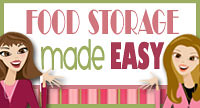Going out to eat is expensive, and that's all there is to it. We never go out expecting to save money over cooking at home, so that's not what this is about.
When cooking at home, there are different levels of economy to which one may aspire, with of course a cost/benefit analysis that one must consider when purchasing quality ingredients. How much is organic worth? How much does it really save me to buy dry beans when I have to spend many hours of energy and water preparing them, as opposed to cans of beans that cost more but are both still quite cheap and much easier to cook with?
When it comes down to it, the difference between a can of organic beans vs a sack of dried beans is quite huge, but I find myself wedged in a world of penny pinching.
I just bought this book:
Dinner is in the jar.
It's a great little book and I find myself interested in a good percentage of the recipes. I sat and did some math and found that one of the meals, I believe it was chili, would cost a little over $12 to assemble the whole jar of food (dried mushrooms, dried bell peppers, tvp, etc). The jar makes roughly 15 cups of food, a quantity that would feed my family twice with one or two lunches left over. I found myself crunching numbers of fresh vs frozen vs dehydrated vs freeze dried peppers and cans of dried mushrooms vs those little cans of stewed mushrooms and I realized that I'm taking this whole thing way too seriously.
It's food storage! Does it have to give me maximum food savings in order to be worth the time and effort? Does it have to yield absolute efficiency with zero waste in the form of long-term yummy insurance in order to give me some peace of mind?
So, with the exception of a couple of rewrites (like tiny cans of tomato paste instead of tomato powder, because, what the heck?? tomato powder??) I'm going for it.
After Tag gets baptized this Saturday. :D
Tuesday, May 24, 2011
Subscribe to:
Post Comments (Atom)









1 comment:
What do you think of the book? It's been in my wish list at amazon for forever. :)
Post a Comment